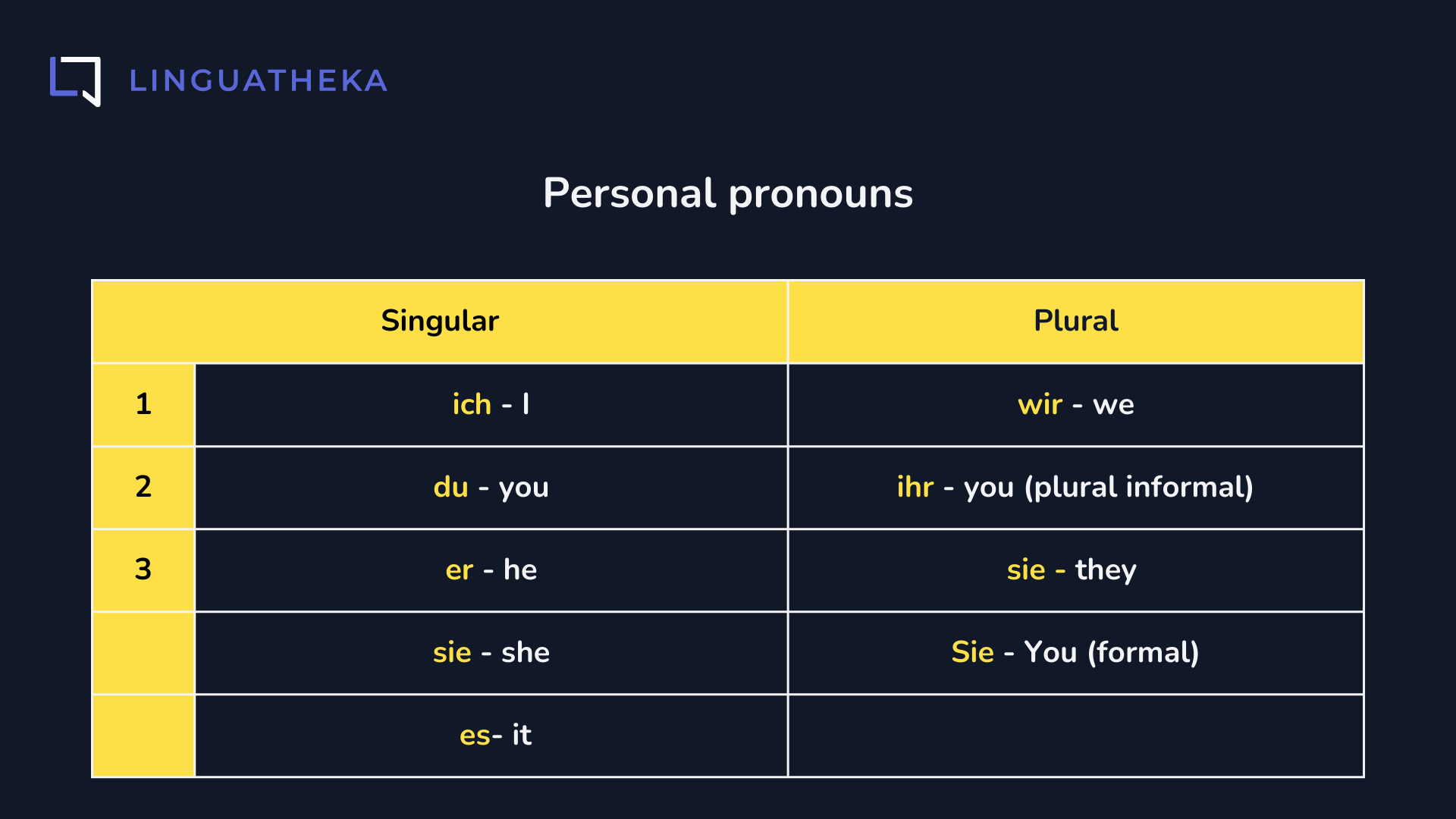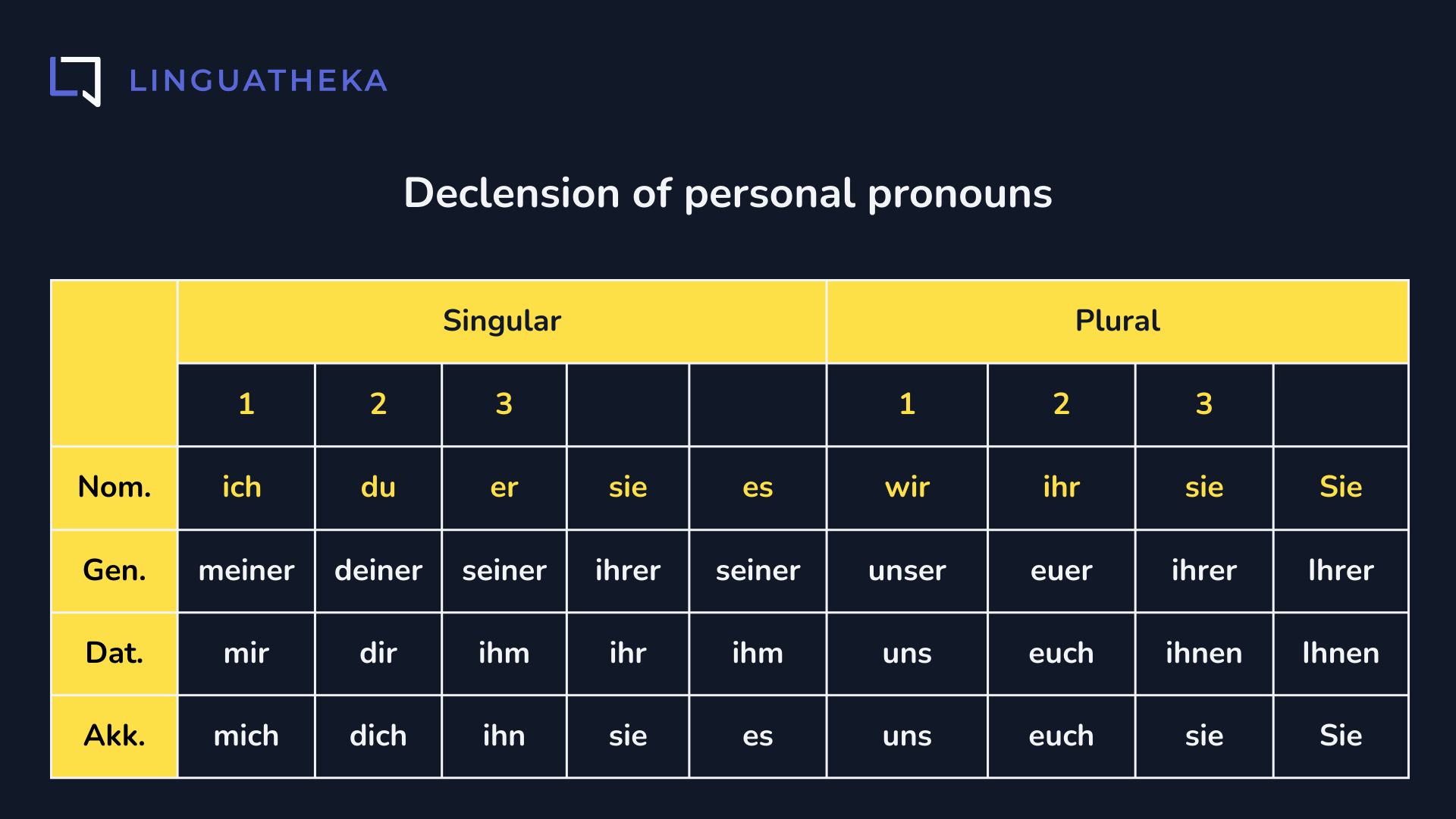What kinds of pronouns are there in the German language? How are they declined? You’ll find answers to these and many other questions about pronouns in this article.
Pronouns (Ger. Pronomen) serve a demonstrative or substitutive function.
In German, we distinguish personal, demonstrative, possessive, interrogative, indefinite, and other types of pronouns.
Let’s take a closer look at each group.

It should be noted that the polite form Sie is used both in the singular and plural. The pronoun ihr (“you” plural) is only used for people with whom we are on informal terms.
Third person singular pronouns (er, sie, es) replace not only people but also objects, whose grammatical gender often differs between Russian and German. This should be taken into account when translating:
Das Handy ist neu, aber es funktioniert nicht. - The phone is new, but it doesn’t work.
In sentences, personal pronouns decline according to the following pattern:

Ich habe dir eine Tasche gekauft. - I bought you a bag.
Möchten Sie Tee oder Kaffe? - Would you like tea or coffee?
INDEFINITE PERSONAL PRONOUN MAN
The pronoun man is always the subject of an indefinite personal sentence. This pronoun is not translated into Russian, but implies an animate actor, and is therefore always used with verbs referring to human actions.
Man corresponds to the 3rd person singular, so the verb paired with it takes the 3rd person singular form:
Man arbeitet am Wochenende bei diesem Unternehmen nicht. - They don’t work at this company on weekends.
Man darf Vorlesungen dieses Professores nicht versäumen. - You must not skip this professor’s lectures.
THE PRONOUN ES
The pronoun es in German is multifunctional:
1. It functions as a personal pronoun in the 3rd person singular and replaces neuter nouns in the singular.
At the same time, keep in mind that grammatical gender in Russian and German may differ:
Das Bett in deinem Zimmer ist echt groß, ist es 3 meter lang? - The bed in your room is really big, is it 3 meters long?
2. It is used as a demonstrative pronoun meaning “this/that”:
Es war keine lange Fahrt. - It wasn’t a long trip.
3. As the subject of impersonal sentences, in which case the pronoun es is not translated into Russian.
The impersonal pronoun es is used:
Es schneit. - It’s snowing.
Es regnet. -It’s raining.
Es ist heute kalt. - It’s cold today.
Es ist Frühling. - It’s spring.
Es ist schon Mittag. - It’s already noon.
geben - to give, but es gibt - there is/are
Es gibt viele Sehenswürdigkeiten in Berlin. - There are many sights in Berlin.
handeln - to trade, but es handelt sich um - it is about ...
Es handelt sich um eine sehr große Firma. - It’s a very large company.
Es ist immer interessant, eine neue Kultur kennenzulernen. - It’s always interesting to get to know a new culture.
How clear and useful was the article to you?
Start now
days
hours
min
sec
Price €160.00
Language Deutsch, B1.2
Start February 26, 2026
Course Leichter Kurs B1.2
Group #124
Start now
days
hours
min
sec
Price €160.00
Language Deutsch, B1.2
Start February 26, 2026
Course Leichter Kurs B1.2
Group #124



